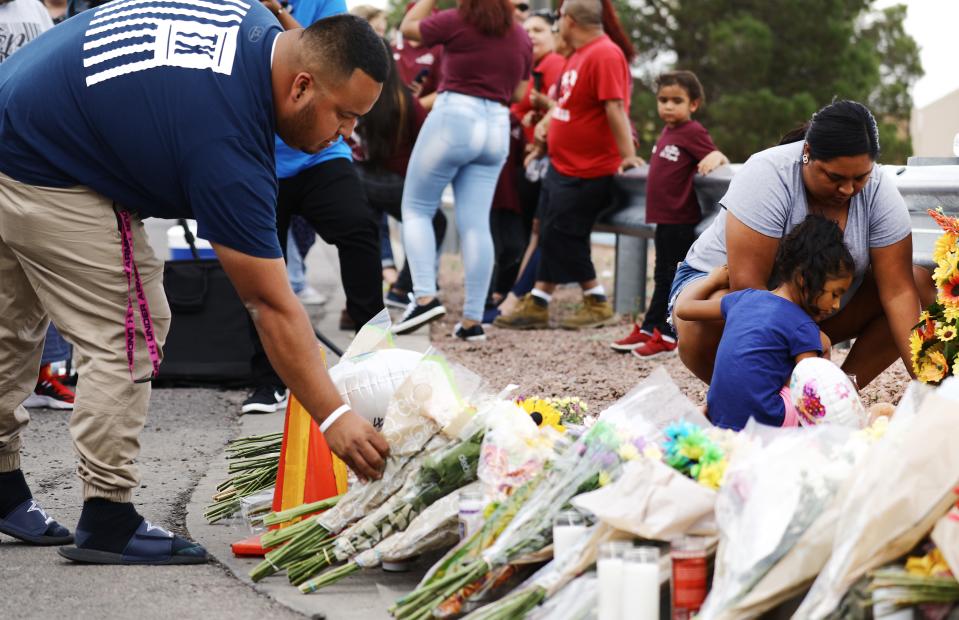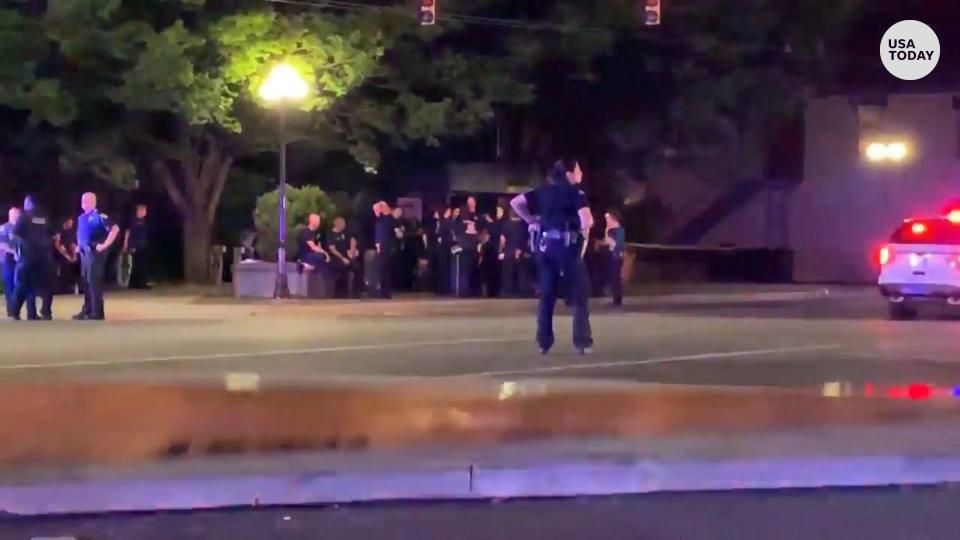9/11 Commission chairmen urge new domestic terror focus in wake of mass shootings
WASHINGTON – The chairmen of the seminal investigation into the 9/11 attacks said Monday that the time has come for a similar examination of domestic terrorism following a series of mass shootings that shook the country and highlighted a growing threat fueled in part by racial animus.
Tom Kean, the former Republican New Jersey governor, and Lee Hamilton, a former Democratic congressman from Indiana, said the current political establishment appears at a loss for how to respond to repeated spasms of gun violence that have cut a bloody swath through an increasing number of American communities.
Kean and Hamilton, whose 9/11 inquiry resulted in an overhaul of the U.S. intelligence system and new information sharing systems across the government, said in interviews with USA TODAY that a similar examination of domestic extremism would require a bipartisan commitment that would likely be difficult during a time of such political discord.
"This is such a desperate problem that something like a commission could work, but you would have to have a total commitment," Kean said. "It just seems like the country doesn't know what to do."
The crisis deepened over the weekend when 31 people were killed and dozens wounded in separate attacks in El Paso, Texas, and Dayton, Ohio. In the Texas assault, which left 22 dead, authorities were reviewing the contents of a so-called manifesto linked to the 21-year-old suspect who surrendered to the police, in which he appeared to rage against Hispanic immigrants.

The authorities have not established a motive for the Ohio shooting, in which a 24-year-old gunman wearing body armor opened fire on a crowded city street. He was killed by the police less than a minute into the attack, which left nine dead.
Noting the weekend's bloodshed, Hamilton offered an even more ominous assessment, calling the scourge of mass shootings a “long-neglected” feature of U.S. national security that will likely take "decades" to fix.
“We’ve got a serious problem,” Hamilton said. “Terrorism is a product of grievances, and I don’t see these going away. These grievances – whether real and perceived – are built into the future for as far as you can see. And we should prepare for a long-term effort. I’m inclined to think that a national security commission would have merit.”
Yet both 9/11 leaders cautioned that the investigation they led benefited enormously from public and political support summoned in the aftermath of a catastrophic strike by foreign-born terrorists – a show of national and sustained unity that has yet to emerge from even the most deadly domestic attacks.
Since the El Paso attack, some Democrats have lashed out at President Donald Trump, accusing him of stoking the type of anti-immigrant rhetoric that echoed through the alleged gunman's manifesto.
Trump, in his first extended remarks since the weekend attacks, condemned on Monday “racism, bigotry and white supremacy.”
"For something like this (a commission) to work, Congress would have to feel that the public demanded it," Kean said.

In such an environment, Kean said victims' families could be an even more "potent force" to restrict access to guns.
For years, and as recently as last month, government officials have been sounding an alarm about the growing threat from within.
FBI Director Christopher Wray told a Senate committee a week before the most recent attacks that the risk posed by domestic extremism was nearly on par with the threat posed by international terrorists.
The FBI director's prescient warning came on the heels of an unusual appeal by the Secret Service, which requested the public's assistance last month in an effort to thwart attacks by lone assailants.
More: FBI's haunting warning about 'lone offenders' paints a grim picture
In 2009, Daryl Johnson, then an analyst for the Department of Homeland Security, warned of the resurgence of right-wing extremism and violence in wake of the election of the country's first black president, Barack Obama.
Johnson's findings triggered a backlash by conservatives, and he claims that DHS has done little since to combat extremism from white supremacists.
“We’re more vulnerable today as a nation than we were back then," he said.
Brian Jackson, a Rand Corp., scientist who co-authored a report that reexamines domestic violent extremism across ideologies, said the challenge in detecting racially animated extremists is often more difficult than identifying attackers inspired by international jihadists.
“We can do outreach to the Muslim community, we can find them,” Jackson said. “Who do we do outreach for with white supremacists? It’s not like there’s a church of white supremacy that you can contact.”
This article originally appeared on USA TODAY: 9/11 leaders call for new focus on mass shootings; problem 'desperate'

